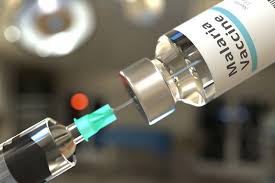African leaders have pledged to intensify efforts to mobilise domestic resources in the fight against malaria amid indications that progress on the continent is stagnating.
The commitment comes against the backdrop of the 2024 Africa Malaria Progress Report, unveiled during the just-ended 38th African Union Summit in the Ethiopian capital Addis Ababa. The report revealed mounting threats to malaria elimination across Africa.
Incoming African Leaders Malaria Alliance (ALMA) chairperson Duma Boko pledged to continue advancing the malaria elimination agenda, emphasising the importance of prioritising increased resources to prevent a catastrophic resurgence and put progress back on track.
“Africa must urgently rise to the challenge by mobilising domestic resources, including by drawing down on the resources in our emergency funds and increasing our health budget allocations,” the Botswana president said.
He added: “We must also scale up innovative financing, including through End Malaria Councils and Funds, and leverage platforms like World Bank IDA and the Green Climate Fund to ensure that our national programs are fully equipped to drive the malaria agenda forward.”
The leaders also urged global partners to recommit to the fight against malaria through the replenishment of the Global Fund to Fight AIDS, Tuberculosis and Malaria.
The 2024 Africa Malaria Progress Report paints a picture of a defining moment in Africa’s fight against malaria.
It highlights serious threats, including insufficient resources, rapid population growth, climate change and biological resistance, which together create a ‘perfect storm’ threatening to reverse decades of progress.
The Global Fund remains the largest source of funding for malaria, providing 62 percent of all international financing for malaria programmes.
The report calls for intensified resource mobilization and the rapid introduction and scale-up of new interventions and commodities.
According to the report, there has been a 38 percent reduction in malaria incidence and a 60 percent reduction in mortality since 2000, preventing 1.8 billion cases and saving 11.9 million lives in Africa over the past two decades.
However, this progress is at risk without renewed commitment and increased resources.
Boko took over from President Umaro Sissoco Embaló of Guinea-Bissau whose two-year term as ALMA chairperson came to an end during the summit.
The handover ceremony was also attended by former Liberian president Ellen Johnson Sirleaf, who has previously chaired ALMA.
Johnson Sirleaf noted that nine End Malaria Councils have since been established and have collectively raised over $125 million in the fight against malaria.
She highlighted the critical role of community health workers in combating diseases like malaria, diarrhoea and pneumonia.
The summit also saw the launch of a new stage of the ‘Change the Story’ campaign, which amplifies children’s stories of how malaria has impacted their lives.
This campaign underscores the human cost of the disease and the urgent need for action, including increased investment in malaria elimination.
JN/APA


